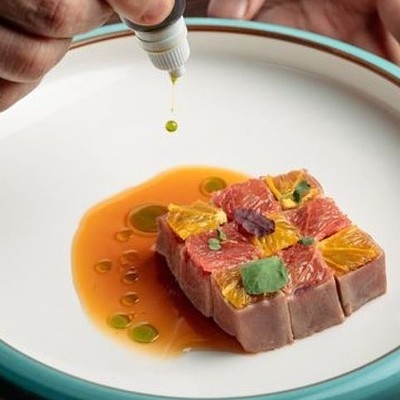The Jewish holiday of Passover starts tonight. Passover celebrates the Jews escaping Egypt and God smiting the cruel pharaoh in the process. Passover is also called "The Festival of Unleavened Bread."
According to the Torah, God sent ten plagues, punishing the pharaoh for not listening to Moses about letting his people go. Wrong move, pharaoh.
God's worst plague was his last. For his coup de grâce, God sent a blight upon the lives of Egypt's firstborn sons. All Jews were commanded to mark their doors with the blood of a spring lamb, allowing His wrathful spirit to pass over their house. Passover.
Moses was then able to lead his people out of Egypt. When it came time, the Jews had to leave so quickly their bread did not have time to rise, leaving the rest of us to feast during Passover upon the dry, unleavened cracker that is Matzoh.
Thanks a lot, Moses.
Unleavened bread was the least of the Hebrews' problems, however, as the Pharaoh decided to give chase, leading to Charlton Heston parting the Red Sea in escape.
While scholars admit that this style of bread making was quite common for the time period -- it traveled easier and kept longer than a risen loaf -- matzoh has become the symbol of Passover.
Matzoh is supposed to be eaten in observance of Passover, but it's probably better known as a component of one of my favorite Jewish dishes. Matzoh ball soup is made out of matzoh meal, which is essentially ground matzoh bread crumbs. Spongy and chewy, matzoh balls soak up the fatty, salty chicken broth they are steeped in for a welcome and hearty meal. Matzoh ball soup is way better than its flatter, crispier, more banal cousin, matzoh bread, but the bread is tied more closely to the holiday.
Seder, the formal Jewish dinner marking the beginning of Passover, features plenty of matzoh. Other types of food and a good amount of wine are required, too. Each menu item bears a unique symbolic ritual and meaning. Matzoh, the unleavened bread, is as tough as the people who ate it, willing to break before they bent.
All the food items are served on a communal plate in their own small section. There are bitter herbs, salt water for dipping and usually some chicken, to name a few. My favorite was always a sweet cinnamon, walnut and apple dish called Charoset, but Matzoh is supposed to be the prominent feature of the plate. All the foods are edible metaphors for the suffering and struggle of Jews, and are consumed with great ceremony.
Most seders use three stacked pieces of matzoh. The middle piece is broken in half at the start of the meal. The first half is used on the seder plate for ceremony and the other half, called Afikoman, is wrapped in cloth and hidden until the end of the meal.
Different families have different traditions for ending seder, usually involving some sort of game or fun activity for the children, but they all include consuming the Afikoman. I remember searching with my brother for the Afikoman, poring through drawers and prying suspiciously placed books carefully open. For my family, finding the hidden piece meant a small reward of some sort -- a few dollars, an extra helping of food or a sweet, sort of like a winner-take-all Easter Egg hunt.
Jews aren't supposed to eat leavened bread during Passover. As a result, ample amounts of matzoh are consumed. There are a number of things you can do to spice it up a bit, but it's still pretty drab and saltine-like, without the salt on top. I used to love matzoh with peanut butter. You can't use crunchy peanut butter, though, or the cracker will just fall to pieces.
Manischewitz is like the kosher Cadbury of Passover, so if you are in the market for matzoh, you might as well go with what is in every single Jewish grandmother's pantry. They also offer gefilte fish and wine, but I would stay away from them both. (And Jeremy Parzen might disagree.)
If you have any Jewish friends, try to find your way into a seder. It's long, and it's totally worth it. Try some new foods, make some new friends and have your mouth dry completely of saliva because of flat, crispy bread.
Don't worry, though. While Passover does involve lots of rather plain matzoh, it also involves reclining, eating, wine, family and friends -- the ingredients for any good holiday.
Follow Eating Our Words on Facebook and on Twitter @EatingOurWords





